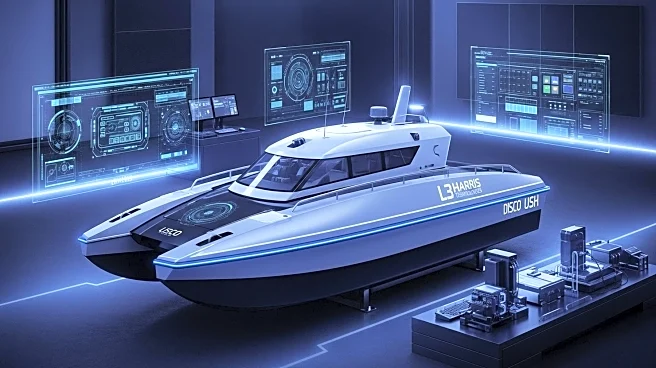What's Happening?
L3Harris Technologies has introduced its Distributed Spectrum Collaboration and Operations (DiSCO) architecture aboard the Shadow Fox unmanned surface vehicle (USV) at the Defence and Security Equipment International (DSEI) 2025 exhibition in London. DiSCO integrates communication and radar data into a near-realtime common operating picture, enhancing intelligence, surveillance, and reconnaissance (ISR) capabilities. The system was developed in response to the evolving battlespace characterized by distributed sensors and autonomous platforms. It aims to manage the electromagnetic spectrum efficiently, providing commanders with critical information for timely decision-making.
Why It's Important?
The unveiling of DiSCO ISR software is significant for the defense industry as it addresses the challenges of managing vast amounts of data in modern warfare. By offering a scalable, software-defined ecosystem, DiSCO reduces bandwidth demands and ensures that essential information reaches commanders even in congested or contested environments. This development enhances mission resilience and operational effectiveness, potentially benefiting military operations and national security. Stakeholders in defense technology and military strategy stand to gain from improved situational awareness and decision-making capabilities.
What's Next?
L3Harris Technologies may continue to refine and expand the capabilities of DiSCO, potentially integrating it with other platforms and systems. The defense industry could see increased adoption of such technologies, prompting further innovation in ISR solutions. Military and government agencies might evaluate the system's effectiveness in real-world scenarios, influencing procurement decisions and strategic planning.
Beyond the Headlines
The introduction of DiSCO highlights the growing importance of digital and autonomous technologies in defense. It underscores the shift towards network-centric warfare, where data fusion and real-time intelligence are crucial. Ethical considerations regarding autonomous systems and data privacy may arise as these technologies become more prevalent.









